NEWS
Joint Symposium: One Health and Biodiversity in Metz!
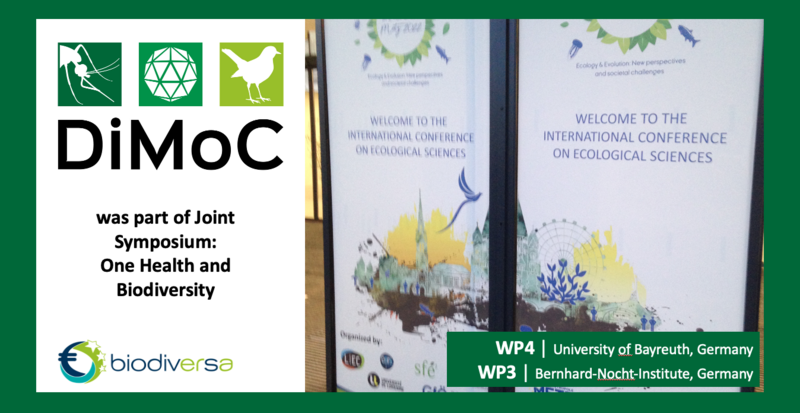
Members of the DiMoC Project funded presented latest results in a Symposium on "One Health: Why Biodiversity is important?" at the International Conference on Ecological Sciences in Metz and brought in the perspective of mosquito-borne diseases. Thank you Dr. Forest BiodevERsA project for organizing.
IPBES: Sustainable use of wild species!
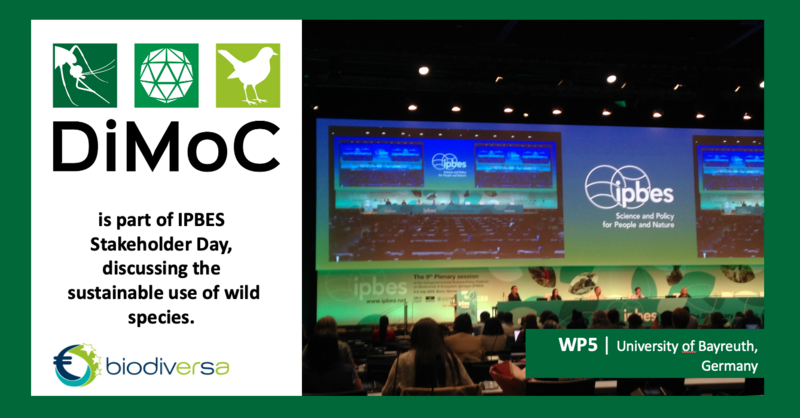
The sustainable use is important to maintaining healthy populations of wild species in turn also human health, e.g.preventing zoonoses. Members of the DiMoC Project funded by BiodivERsA participate in Intergovermental Science Policy Plattform for Biodiversity and Ecosystem Services Stakeholder Day and IPBES plenary 2022.
High wind speed prevents vector establishment!
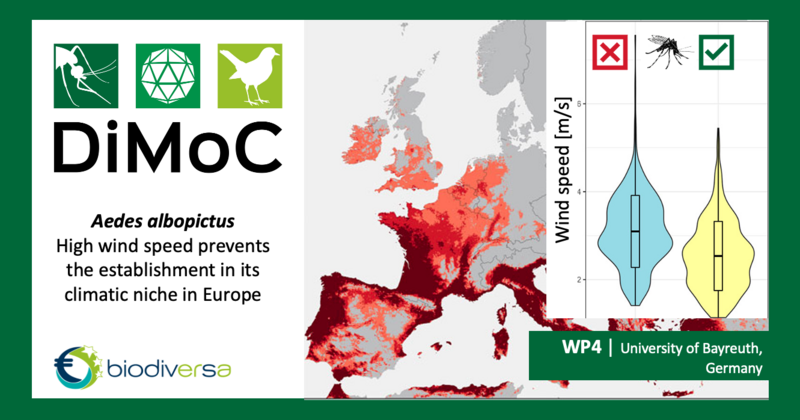
Research published: High wind speed prevents the establishment of the disease vector mosquito Aedes albopictus in its climatic niche in Europe: https://www.frontiersin.org/articles/10.3389/fenvs.2022.846243/full
Starting Biological Safety Levels 3 insectary training!
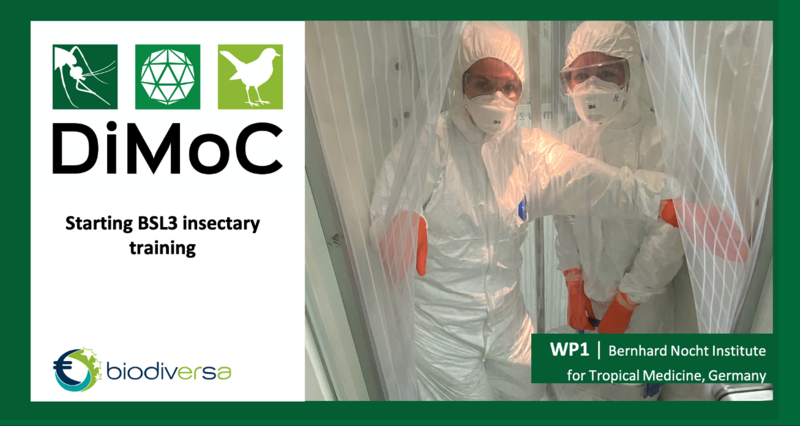
The training in biosafety level 3 insectary recently started for DiMoC partners at BNITM Hamburg. Ready to take off for further vector competence studies of Aedes albopictus and Culex pipiens.
Presenting latest results: Symposium Aedes albopictus control!
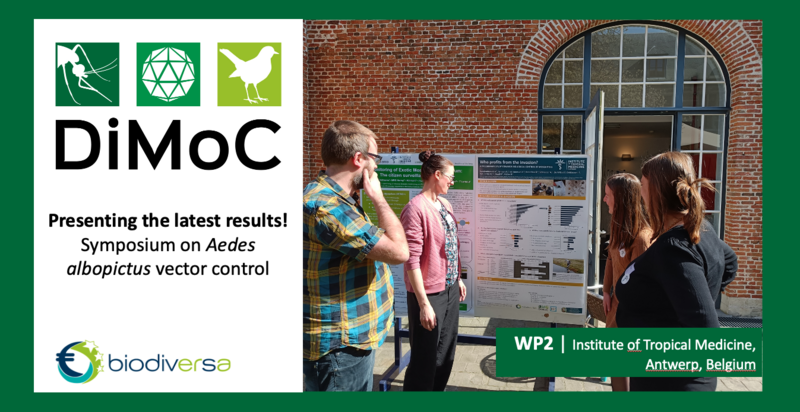
Informing stakeholders and scientists about our research at the symposium on Aedes albopictus vector control organized by the Institute of Tropical Medicine, Antwerp.
Collection of bird abundance data in Germany!
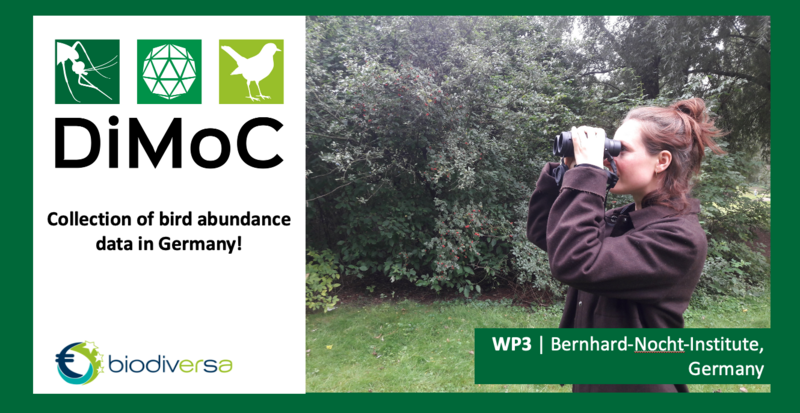
Collecting bird abundance data to further understand the connection between host-diversity and the circulation of Usutu virus or West Nile virus in Germany. Now in autumn the host diversity decreases as many birds migrate to the South.
Presenting latest results at AIM-COST.
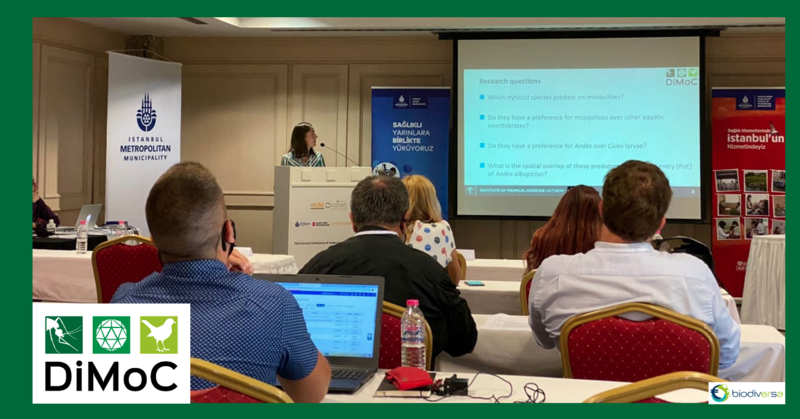
Impressions from the 3rd AIM-COST conference in Istanbul. It was a great opportunity to meet scientists from all over the world and share the latest mosquito related research.
Large cage experiment: Swarming behaviour.
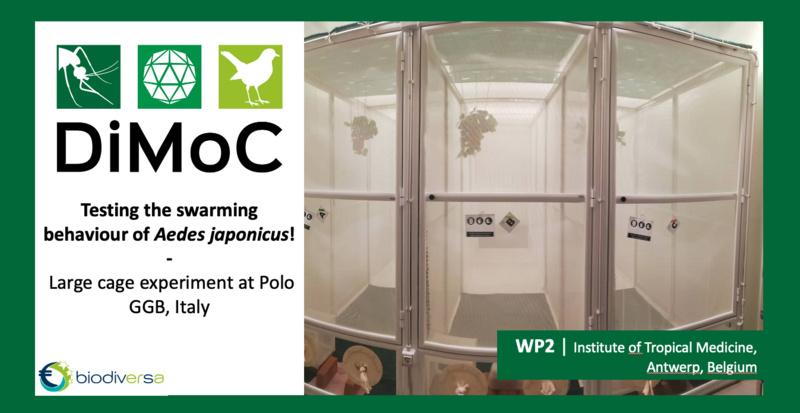
Preparing the cages to make it as cosy as possible for our bush mosquito. Institute of Tropical Medicine Antwerp collaborates with PoloGGB and use their CL2 large cages to test the swarming behaviour of Aedes japonicus (infravec2).
Indications of the circulation of Usutu.
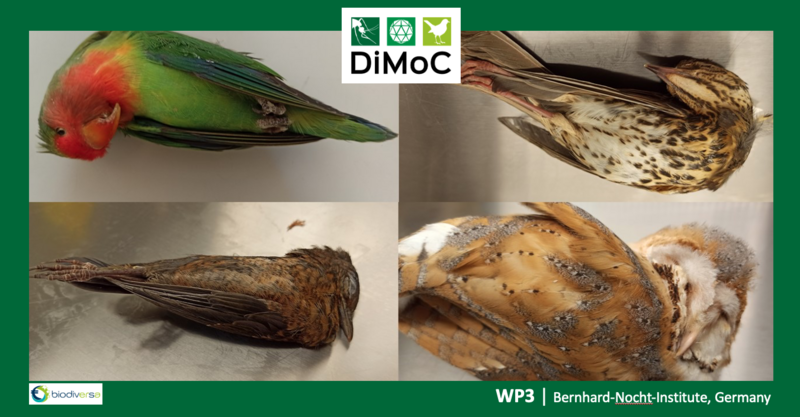
Although the summer temperatures in Germany are moderate, dead birds submitted by citizens indicate the circulation of Usutu virus and West Nile virus also in 2021.
Greetings from the General Assembly 2021!
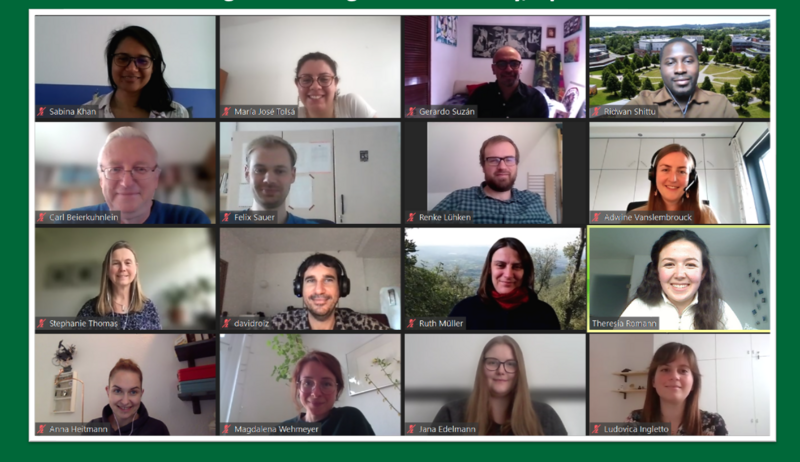
Learn more about DiMoC - Diversity components in mosquito-borne diseases in face of climate change - A BiodivERsA project!
Mosquito Trapping started in
South of France!

Greetings from the field, mosquito trapping has started in June in South of France!
We use BG sentinel and resting traps to identify the distribution of different mosquitoes in the field locations of Camargue, France (MIVEGEC).
In search for mosquito eggs!
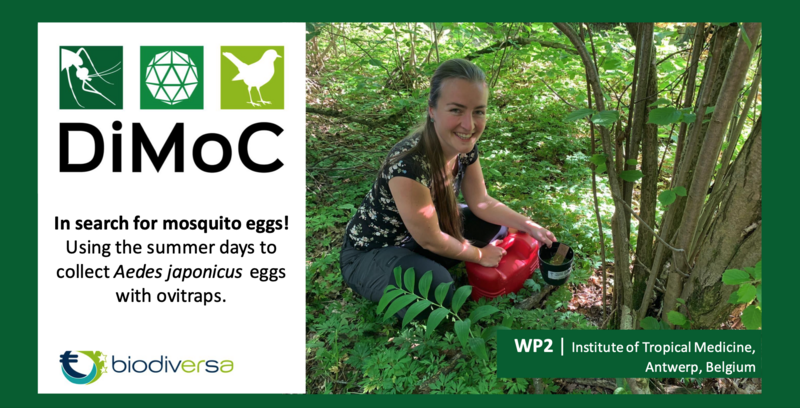
In search for mosquito eggs!
We use ovitraps to collect Aedes japonicus eggs and also perform larval sampling to rear them at insectary of Institute of Tropical Medicine Antwerp.
DiMoC at the IPBES 8 Stakeholder Days!
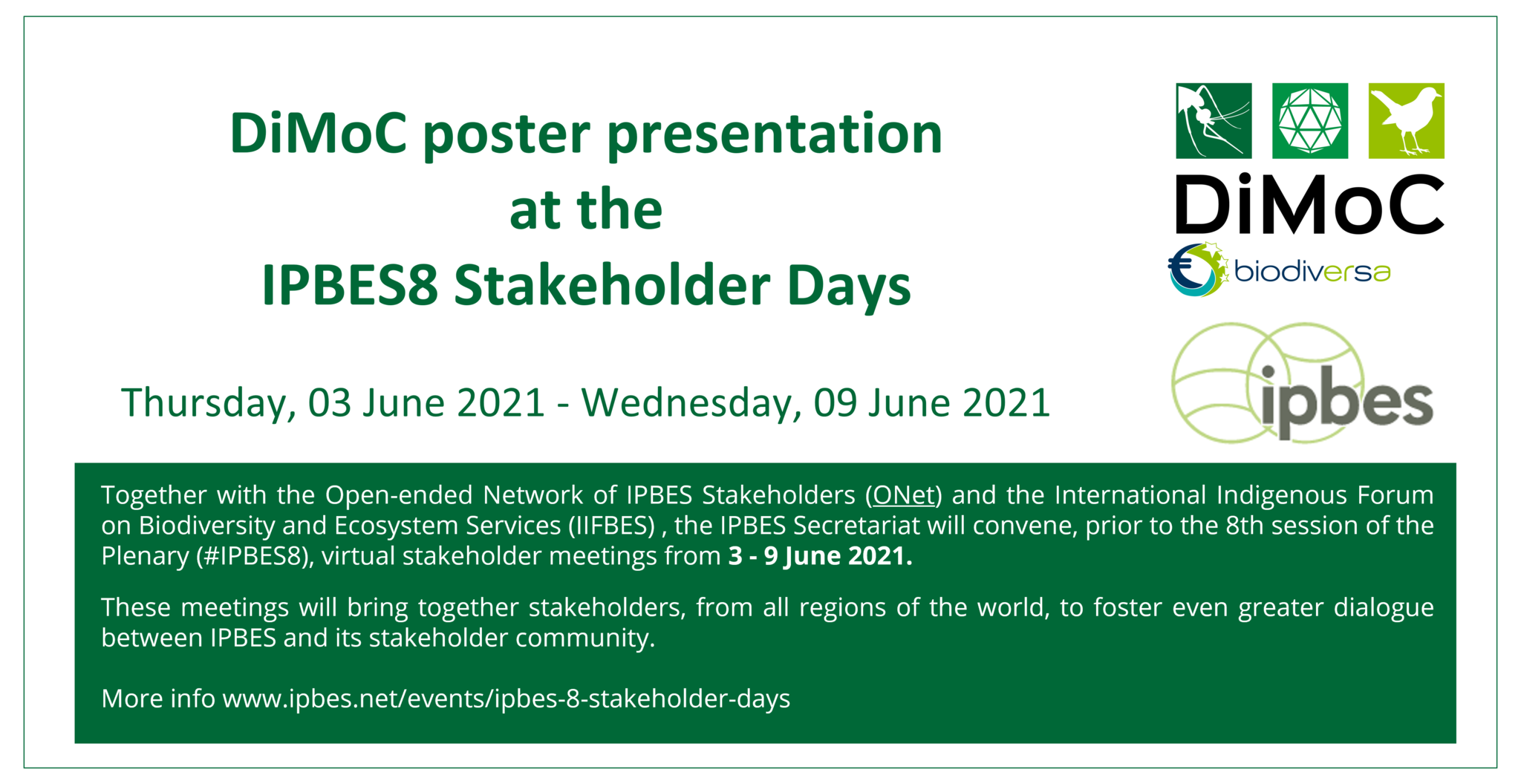
We are happy to announce that DiMoC will be participating with an e-poster presentation at the #IPBES8 Stakeholder Days! The virtual stakeholder meetings will take place from 3 - 9 June 2021.
Latest news from workpackage 2
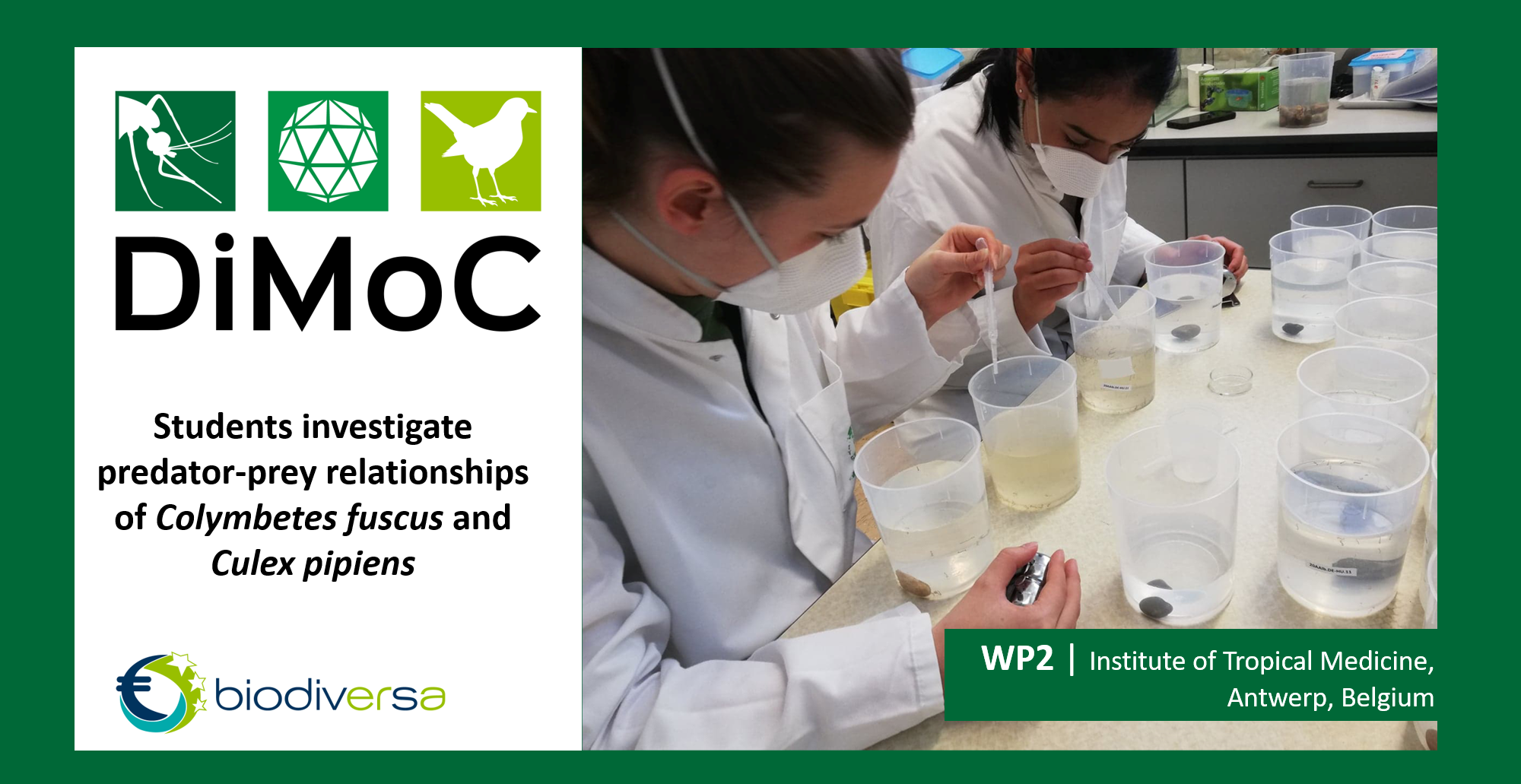
Students got the chance to study predator-preay relationships in mosquitoes In particular they looked at Colymbetes fuscus attacking larvae of Culex pipiens.
The natural diversity of mosquitoes comprehensively addressed: 3,698 valid specias and subspecies globally

Book recommendation
A book closely related to our project was recently published by Richard C. Wilkerson, Yvonne-Marie Linton and Daniel Strickman. The authors offer readers unique insights into the fascinating world of mosquitoes while illustrating their diagnostic morphological features in detail. Comprehensively addressing the natural diversity of mosquitoes, the book explains their life histories, bionomic traits, and the physiological and physical adaptations they evolved in response to ever-changing environmental conditions.
Greatings from the field - Mosquito Trapping starts in Germany!

News from the field.
We used the good weather to start with the field work!
Within Workpakage 3 we use BG sentinel and resting traps to identify the distribution of different mosquitoes in the field locations around Hamburg, Germany.
